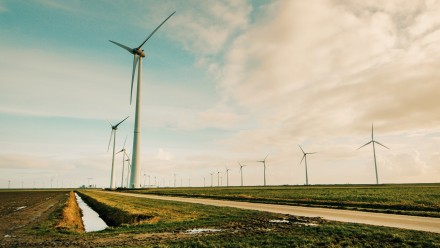Research scope

As an interdisciplinary institute with more than 500 members, we bring together researchers and students from 25 Schools across ANU. We support a range of research clusters, comprising groups of people, often from different disciplines, working together to build communities of practice across specific research areas. These may be long-term ongoing collaborations or convened around specific projects.
The ANU Institute for Climate, Energy & Disaster Solutions provides leadership on climate change, energy transition & disaster-risk research and teaching. We have outlined the scope of our research below.
Culture and society »
Climate change, the energy transition and disasters affect all aspects of our society and culture, and require interdisciplinary approaches.
Earth sciences »
Understanding the processes that move energy and water through the ocean and atmosphere, and being able to model these processes in computer simulations, is critical for improving the accuracy of projections of future climate change. Our members' earth sciences research encompasses fields including climate science, atmospheric processes, oceans, water, the carbon cycle, the cryosphere, and geophysical conditions.
Health & security »
Our members' work broadly encompasses state and human security, health and wellbeing, human security, energy systems, infrastructure, emergency preparedness and disaster responses.
Land, water, food, energy & biodiversity nexus »
Caring for our ecosystems and conserving biodiversity threatened by climate change and other environmental stress factors such as land clearing is a challenge facing land managers and policy-makers throughout the world.
Net zero technologies & policies »
Our members' expertise includes researching and testing the technologies and policies required to shift societies to adapt to our changing climate and become greenhouse gas neutral, covering decarbonisation of every sector of our economy including energy, transport and agriculture.
Policy, economics, law and governance »
Members' work spans domestic and international responses to climate and energy policy and economics and disaster preparedness and responses, including reducing greenhouse gas emissions (mitigation) and climate change adaptation.













